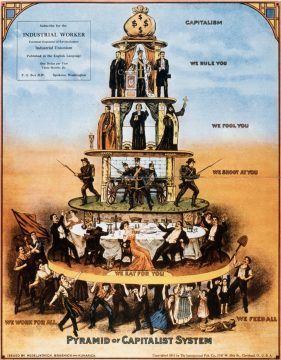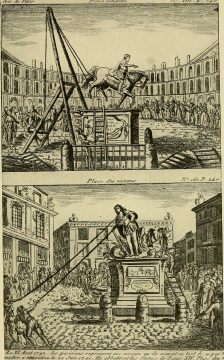by Chris Horner
 The political philosophy, and more importantly, political practice that took root in the wake of the ‘Age of Revolutions’ (say 1775-1848) was liberalism of various kinds: a commitment to certain principles and practices that eventually came to seem, like any successful ideology, a kind of common sense. With this, however, came a growing sense of dissatisfaction with what it seemed to represent: ‘bourgeois society’. Here is a paradox: at the very point at which the Enlightenment promise of the free society seemed to be coming true, discontent with that promise, or with the way it was being fulfilled, took hold. This was a sense that the modern citizen and subject was somehow still unfree. If this seems at least an aspect of how things stand with us in 2020 it might be worth looking back, for doubts about the liberal project have accompanied it since its inception.
The political philosophy, and more importantly, political practice that took root in the wake of the ‘Age of Revolutions’ (say 1775-1848) was liberalism of various kinds: a commitment to certain principles and practices that eventually came to seem, like any successful ideology, a kind of common sense. With this, however, came a growing sense of dissatisfaction with what it seemed to represent: ‘bourgeois society’. Here is a paradox: at the very point at which the Enlightenment promise of the free society seemed to be coming true, discontent with that promise, or with the way it was being fulfilled, took hold. This was a sense that the modern citizen and subject was somehow still unfree. If this seems at least an aspect of how things stand with us in 2020 it might be worth looking back, for doubts about the liberal project have accompanied it since its inception.

Three political philosophies were contending for the inheritance of the age of revolution: Radical/egalitarian, Conservative and Liberal. For conservatives, after the more extreme response of figures like Joseph de Maîstre (1753-1821) who wanted the speedy eradication of the fact and the idea of the revolution; a total return and restoration of the ancien regime, a more pragmatic ‘reaction’ remained possible. Edmund Burke (1729-97) stands here in an interesting position. No bone-headed follower of despotism, he had argued the case of the American colonists in their Revolution with great eloquence. But things changed when he considered events in France. His Reflections on the Revolution in France (1790) stems from a horror at many things, not only sans culottes rampaging through the Tuileries, but also the pretensions of the ‘democratic’ revolutionary elite. He can be seen as a mere counterrevolutionary, yet the conservative tradition to which he belongs (which includes Carlyle and Ruskin) did develop a critique of the liberal individualism of the new century. Read more »
